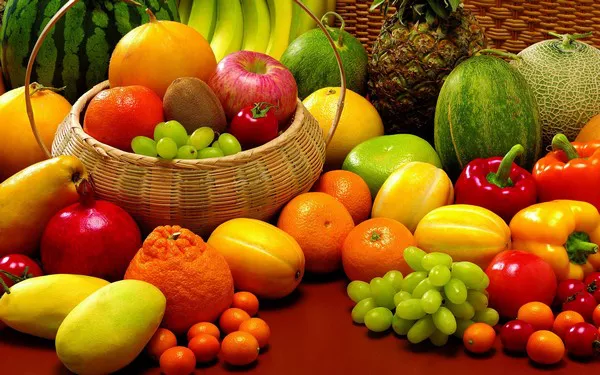In recent years, there has been a notable surge in interest and adoption of vegetarian diets, driven by health-conscious choices, environmental concerns, and ethical considerations. One of the primary concerns for individuals embracing a vegetarian lifestyle is ensuring an adequate intake of protein, a crucial macronutrient for overall well-being. Contrary to popular misconceptions, there is a plethora of plant-based protein sources that can not only meet but exceed the protein requirements of vegetarians. In this comprehensive guide, we will delve into the world of plant-powered nutrition and explore the best sources of protein for those choosing a vegetarian path.
Understanding Protein Needs:
Before we embark on our exploration of vegetarian protein sources, it is essential to comprehend the significance of protein in the human diet. Proteins are composed of amino acids, the building blocks of life, and play a pivotal role in various physiological functions, including muscle building, immune system support, and enzyme production. The Recommended Dietary Allowance (RDA) for protein varies based on factors such as age, sex, and activity level. However, a general guideline suggests that adults should aim for 0.8 grams of protein per kilogram of body weight. For vegetarians, meeting this requirement necessitates a strategic selection of plant-based protein sources.
5 Best Sources of Protein for Vegetarians
1. Legumes: The Powerhouses of Plant Protein
Legumes, including beans, lentils, and chickpeas, stand out as nutritional powerhouses in the world of vegetarian protein sources. Rich in both protein and fiber, legumes offer a dual benefit of promoting satiety and supporting digestive health. This section will explore the protein content, amino acid profile, and versatility of legumes in various cuisines. Additionally, we will delve into the health benefits associated with regular legume consumption, such as improved blood sugar control and heart health.
2. Quinoa: The Complete Protein Grain
Quinoa, often hailed as a superfood, is a grain that stands apart due to its complete protein profile, containing all essential amino acids. This section will provide an in-depth analysis of quinoa’s nutritional composition, exploring its role in meeting protein needs for vegetarians. We will also discuss the versatility of quinoa in the kitchen, offering tips on incorporating this nutrient-dense grain into a balanced vegetarian diet.
3. Nuts and Seeds: Tiny Packages of Protein
Nuts and seeds are compact nutritional powerhouses, offering a rich array of protein, healthy fats, vitamins, and minerals. This section will highlight the protein content and nutritional benefits of various nuts and seeds, including almonds, walnuts, chia seeds, and hemp seeds. Additionally, we will explore creative ways to incorporate these plant-based proteins into meals and snacks, providing both taste and nutrition.
4. Tofu and Tempeh: Soy-Based Protein Alternatives
Soy-based products, such as tofu and tempeh, are popular among vegetarians for their versatility and high protein content. This section will delve into the nutritional benefits of tofu and tempeh, comparing their protein profiles and discussing their role in a well-balanced vegetarian diet. We will also address common misconceptions surrounding soy consumption and its impact on health.
5. Dairy and Eggs: Animal-Derived Options for Vegetarians
For lacto-ovo vegetarians, dairy products and eggs are valuable sources of high-quality protein. This section will explore the protein content of various dairy products and eggs, emphasizing their role in meeting amino acid requirements. We will also discuss the importance of choosing high-quality, responsibly sourced dairy and eggs for ethical and environmental considerations.
Seitan and Edamame: Lesser-Known Gems in the Vegetarian Protein Arsenal
While commonly overshadowed by more mainstream vegetarian protein sources, seitan and edamame offer unique nutritional profiles and culinary possibilities. This section will introduce readers to the protein content and preparation methods of seitan and edamame, highlighting their potential in diversifying the vegetarian protein palette.
Plant-Based Protein Supplements: A Convenient Option
In certain situations, individuals may find it challenging to meet their protein needs solely through whole foods. This section will explore plant-based protein supplements, discussing their role in a vegetarian diet, potential benefits, and considerations for choosing high-quality supplements. We will emphasize the importance of obtaining most nutrients from whole foods but acknowledge the practicality of supplements in certain scenarios.
Conclusion:
In conclusion, adopting a vegetarian lifestyle does not necessitate compromising protein intake. By strategically incorporating a variety of plant-based protein sources, individuals can not only meet but exceed their protein requirements while enjoying a diverse and flavorful diet. This comprehensive guide has explored the nutritional benefits of legumes, quinoa, nuts, seeds, tofu, tempeh, dairy, eggs, seitan, and edamame, providing valuable insights for both novice and seasoned vegetarians. Armed with this knowledge, individuals can embark on their vegetarian journey with confidence, ensuring a protein-rich and well-balanced diet that supports overall health and vitality.


